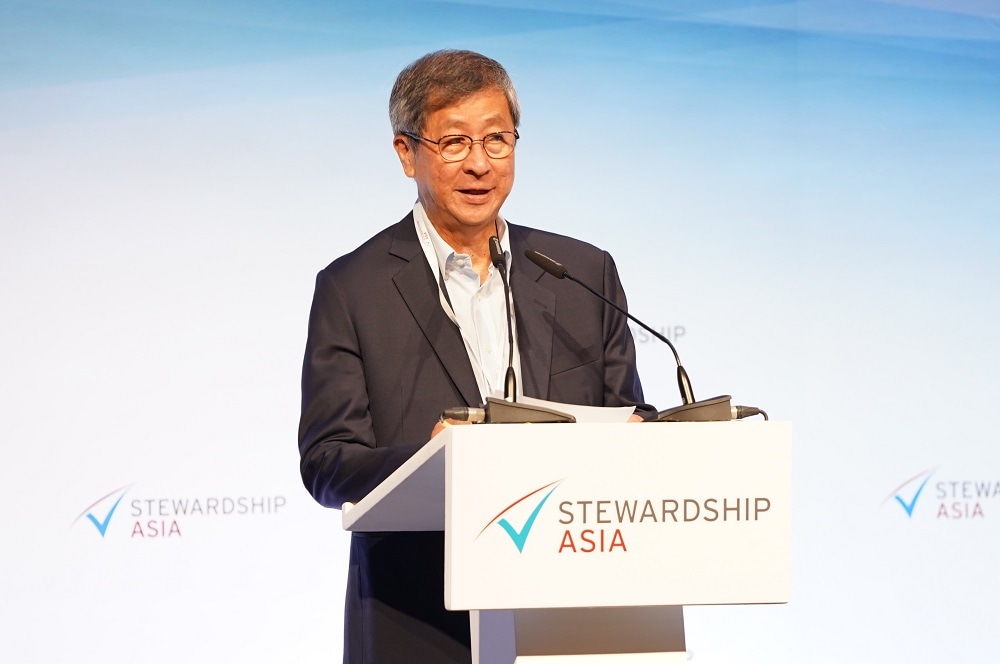Transcript: Opening Address by Lim Boon Heng, to the Stewardship Asia 2019 Roundtable

Temasek Chairman, Lim Boon Heng, speaking at the opening of Stewardship Asia 2019 Roundtable on 4 June 2019.
Good morning, distinguished guests, friends,
Ladies and Gentlemen
I am pleased to share a few thoughts with you as we embark on discussions today about an important topic: that of stewardship.
Even though much in the world of business is undergoing momentous change, the core concept at the heart of stewardship – trust – remains a constant. It is an anchor for all of us in business leadership roles.
We are going to hear from speakers today who come from very different perspectives in business. We’ll hear from leaders of established businesses and new challengers.
For all of us here, industries will vary and the size of our enterprises will be different. However, a common feature is that we all run businesses that are integral to the societies we are part of.
There’s two letters in this year’s theme – R, E – Re – Rediscovering Stewardship. If I may say how much that resonates with me. In the 1980s, in Singapore, we discussed a lot about productivity. Because of my involvement with the trade unions at the time, I studied what productivity meant in different countries.
I found that, in Japan, the Productivity Centre promotes the concept that the results of productivity – what we gain in productivity – should be shared by all stakeholders, not just the shareholders, but the employees, the sub-contractors of the business, and the community at large.
So this is very much in line with what we think of business today – that we do business for the benefit of the societies that we are part of.
Increasingly, challenges faced by businesses today are converging with the challenges confronting our wider society.
People are living and working longer. As businesses and communities, we are conscious of the obligations we have to ensure levels of workforce participation, dignity and care for those who are advancing in years.
All the more so for those who may not have benefited from the upside of economic growth.
Disruptions arising from technological change is not just a competitive threat for a business. It is also creating serious social pressures, because the disruptions we see in business are magnified throughout our communities now, in almost every respect. And we see that reflected in the politics of many countries around the world today.
As business leaders, the way we look at our people must recognise the impact these changes have on them. We need to make our businesses more future-ready by ensuring our people are themselves future-ready.
That’s easier said than done. I think a lot of work is required, a lot of resources are needed, and for which maybe we don’t have enough?
The role of upskilling, and re-skilling is so much more important in an environment of rapid change. Functions once considered manual, or blue collar, are progressively being automated, and some of those tasks are being taken over by machines.
It’s not just manual and blue collar jobs. Even service sector jobs, and lawyers, today have to worry about being disrupted.
Our obligation is not simply to cut costs by adopting machines in place of humans. It is to find ways of transitioning those who are impacted by these changes into other meaningful ways to contribute to our businesses, and to society as a whole.
Leaving people behind is not an option. That would be leaving our customers behind. They won’t have money, they will not be employed, they won’t purchase our goods and services.
Being a steward requires us to look beyond ourselves and our businesses. We accept broader responsibilities in order to earn and maintain the trust of the wider community.
As we set about creating a sustainable path for our businesses, we need to also create a sustainable path for our people.
This, I submit, is the role of stewardship.
It is simply not possible for the individuals, the employers, or the governments, each working alone, to equip communities for big changes. Businesses, civil society groups, labour organisations, individuals themselves and governments must collectively share those responsibilities.
This is why, at Temasek, we see the United Nations Sustainable Development Goals as ones for the whole community, and for businesses in particular. Climate change, social inequality and skills are just some of the challenges that the Goals can help us tackle.
Rather than seeing these challenges as a burden, a stewardship mindset will open the business opportunities that come from doing good. The good that we do is good for our businesses.
At Temasek, we have often spoken of our own role as a trusted steward. In this role, we are inspired to do good, enabling our community to come together for a better life for all of us.
Our role reflects one of the three pillars of our Charter – the others, of course, being an active investor and shareholder, and a forward looking institution.
We see ourselves as trustees – of our portfolio, and in a broader sense, of our wider community. That’s why, when we do well, we seed endowments to support programmes in our community.
These programmes are structured around three main areas: Building resilience; fostering goodwill in our region, and advancing science and nature.
Our society benefits from our investments today, even as we hold their trust as stewards of our portfolio well into the future.
And as we all know, businesses can only thrive when the societies in which they exist thrive.
Ladies and gentlemen, it gives me great pleasure to welcome you to Stewardship Asia Centre’s 2019 Roundtable, and I hope my remarks will kick-start a thought-provoking discussion on how the future of business depends on rediscovering stewardship.
